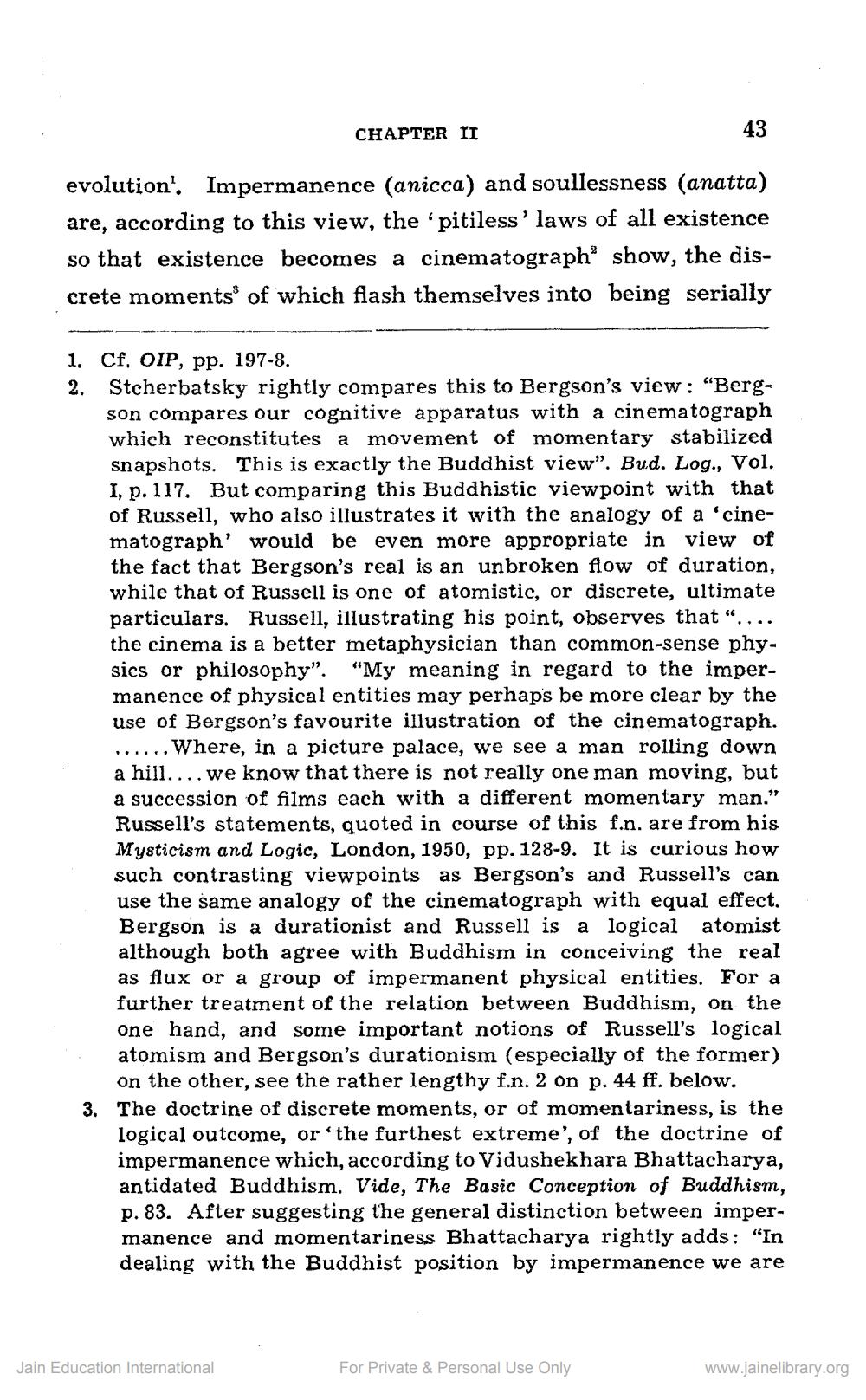________________
1. Cf. OIP, pp. 197-8.
2.
CHAPTER II
evolution'. Impermanence (anicca) and soullessness (anatta) are, according to this view, the 'pitiless' laws of all existence so that existence becomes a cinematograph show, the discrete moments of which flash themselves into being serially
43
Stcherbatsky rightly compares this to Bergson's view: "Bergson compares our cognitive apparatus with a cinematograph which reconstitutes a movement of momentary stabilized snapshots. This is exactly the Buddhist view". Bud. Log., Vol. I, p. 117. But comparing this Buddhistic viewpoint with that of Russell, who also illustrates it with the analogy of a 'cinematograph' would be even more appropriate in view of the fact that Bergson's real is an unbroken flow of duration, while that of Russell is one of atomistic, or discrete, ultimate particulars. Russell, illustrating his point, observes that ". the cinema is a better metaphysician than common-sense physics or philosophy". "My meaning in regard to the impermanence of physical entities may perhaps be more clear by the use of Bergson's favourite illustration of the cinematograph. Where, in a picture palace, we see a man rolling down a hill.... we know that there is not really one man moving, but a succession of films each with a different momentary man." Russell's statements, quoted in course of this f.n. are from his Mysticism and Logic, London, 1950, pp. 128-9. It is curious how such contrasting viewpoints as Bergson's and Russell's can use the same analogy of the cinematograph with equal effect. Bergson is a durationist and Russell is a logical atomist although both agree with Buddhism in conceiving the real as flux or a group of impermanent physical entities. For a further treatment of the relation between Buddhism, on the one hand, and some important notions of Russell's logical atomism and Bergson's durationism (especially of the former) on the other, see the rather lengthy f.n. 2 on p. 44 ff. below.
Jain Education International
3. The doctrine of discrete moments, or of momentariness, is the logical outcome, or 'the furthest extreme', of the doctrine of impermanence which, according to Vidushekhara Bhattacharya, antidated Buddhism. Vide, The Basic Conception of Buddhism, p. 83. After suggesting the general distinction between impermanence and momentariness Bhattacharya rightly adds: "In dealing with the Buddhist position by impermanence we are
For Private & Personal Use Only
www.jainelibrary.org




